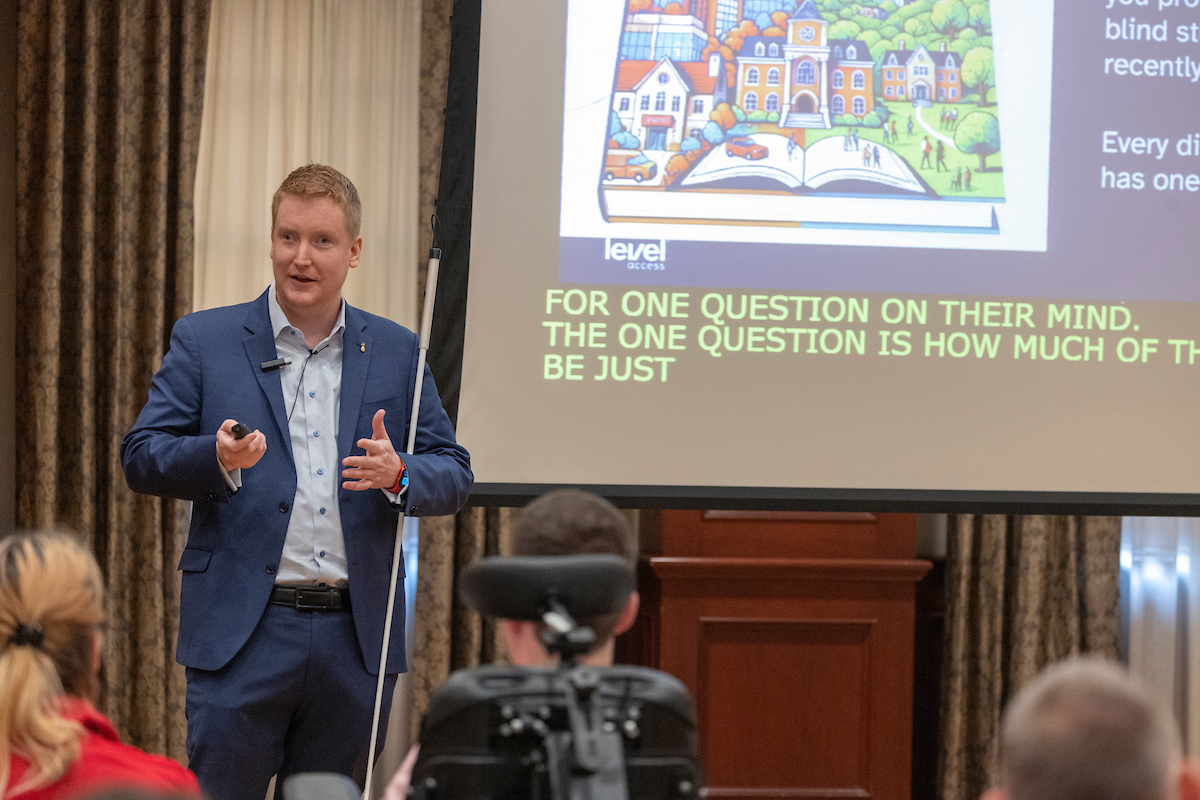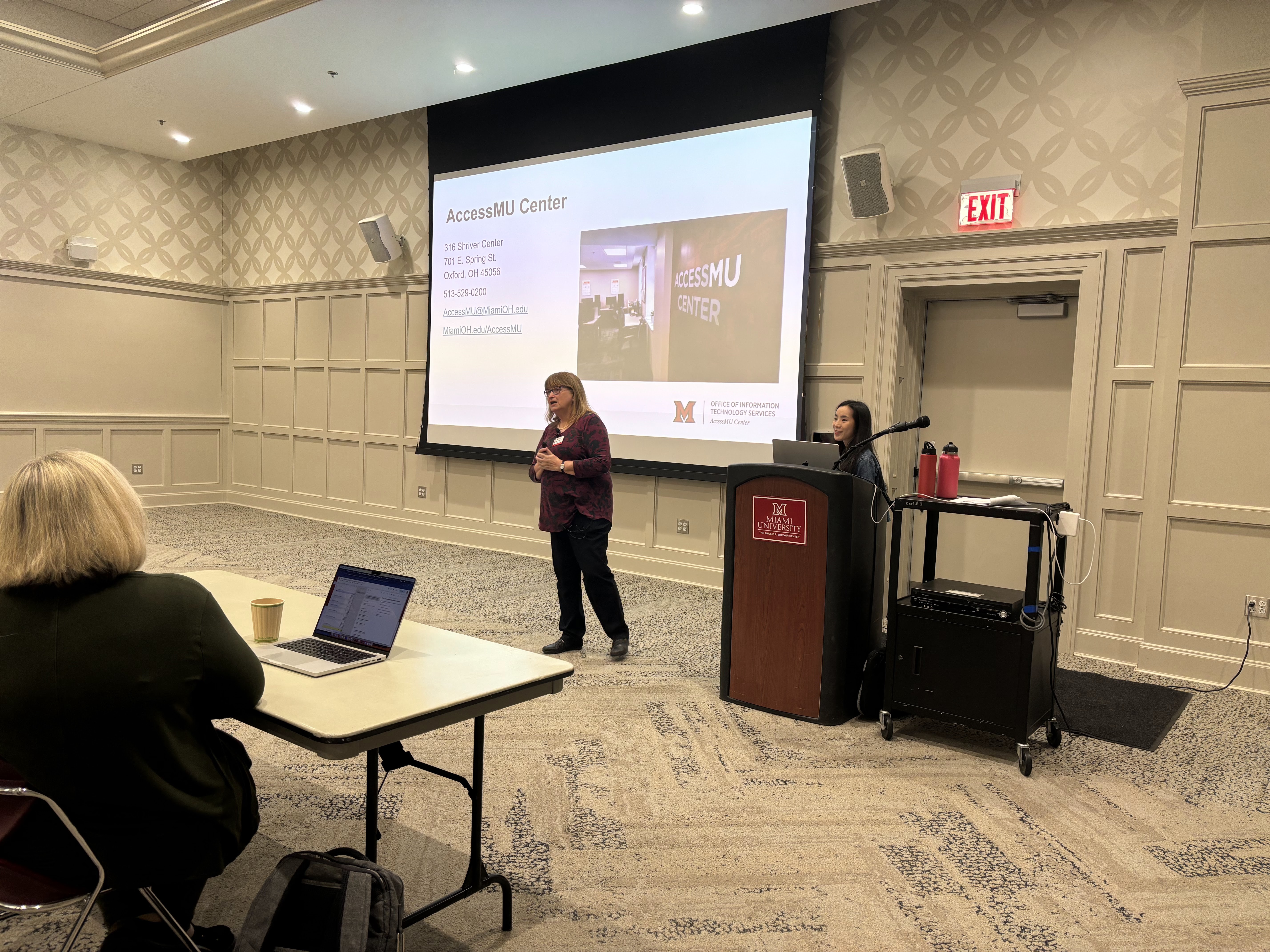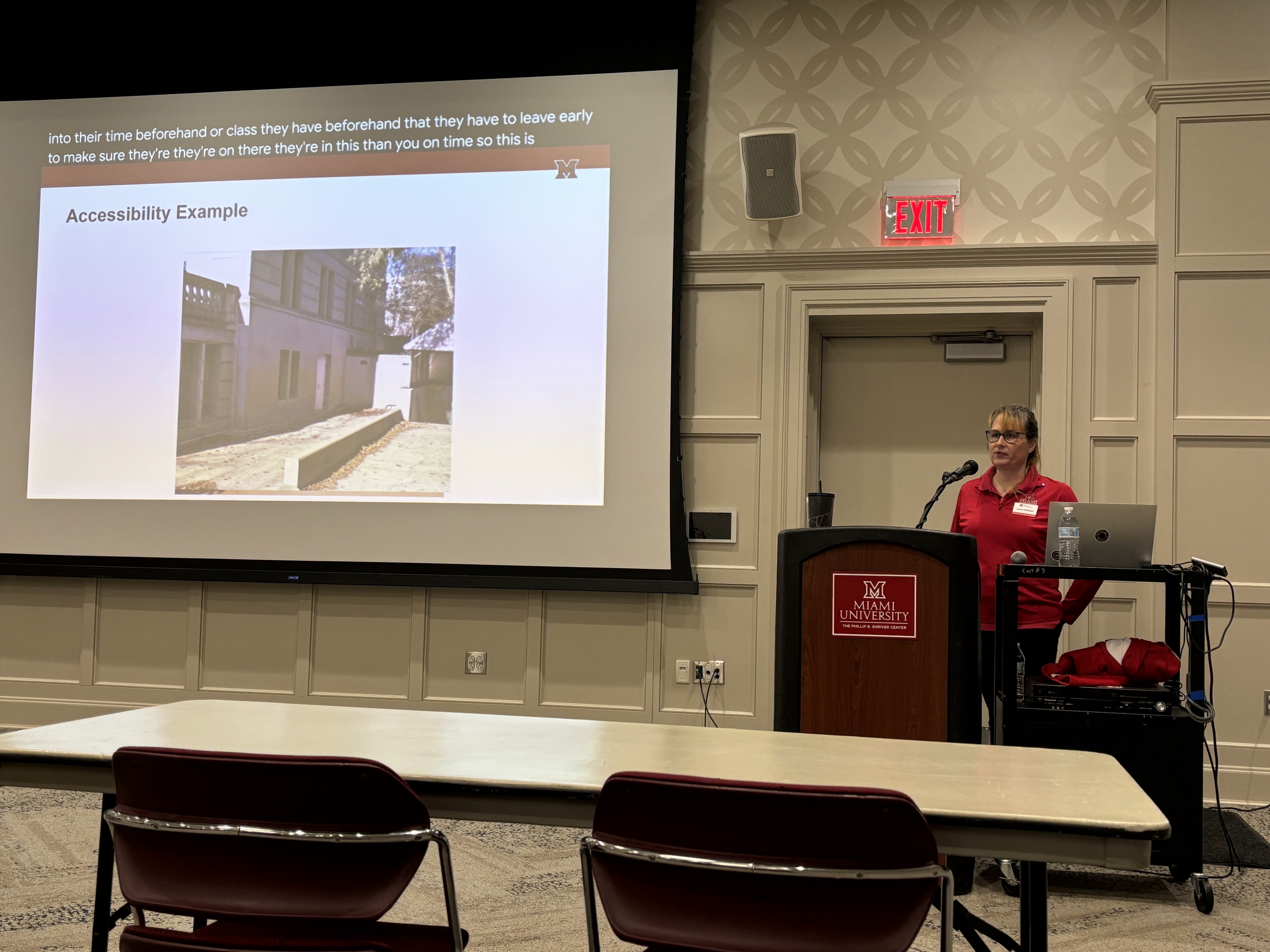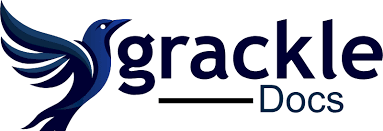Opportunity for competitive advantage at Access for All
On October 25, 2025, the Access for All Annual Accessibility Symposium was held at the Shriver Center on Miami’s Oxford campus. A bright crowd of around 91 attendees gathered in the Heritage Room, eager to expand their knowledge of accessible technologies and how we use them at Miami.
Opportunity for competitive advantage at Access for All
On October 25, 2025, the Access for All Annual Accessibility Symposium was held at the Shriver Center on Miami’s Oxford campus. A bright crowd of around 91 attendees gathered in the Heritage Room, eager to expand their knowledge of accessible technologies and how we use them at Miami.
To begin the day, keynote speaker Corbb O’Connor laid the foundation of what attendees would learn throughout the day. O’Connor is the director of accessibility advocacy at Level Access, a company that has partnered with Miami to help our community create accessible documents and website experiences. He is an engaging speaker who regaled the room with anecdotes and talked about accessibility with easy expertise.
O’Connor talked about the importance of comprehensive disability services through the lens of his personal experience as a blind person who has made use of these services when in school and throughout his career, making it clear that it’s important for higher education institutions to place emphasis on accessibility… because when it’s not a priority, it’s painfully clear.

O’Connor stressed that accessibility should be about more than just following decrees or by-the-letter compliance with ADA mandates. Compliance, he said, is simply about whether you’re going to do the right thing on someone else’s timeline or your own.
“So how do we talk about disability?” he asked the room of attendees. “How do we train students to talk about inclusion and accessibility? We need to focus on the practicalities of accessibility—the fundamentals.”
The fundamentals, he stated, were things like alternative text, video descriptions, writing for screen readers, and other basic principles.
His thesis statement is clear: Making accessibility a priority is a way to establish a competitive advantage in higher education. This is an opportunity to show our customers—i.e., students—that we are dedicated to inclusion—dedicated to providing education for everyone regardless of their disability status. Creating an environment where “compliance” is really about “inclusion” is a huge step toward walking the walk that will distinguish institutions like Miami from others.
Conference sessions provide key expertise
This was the ninth annual Accessible Technology Symposium, and the team worked hard to provide information and activities for the attendees. Sessions included walkthroughs of alternate text, Grackle Docs, using library resources to expand accessible practices, and more.

For more information about Grackle Docs, which is a Google extension that works in the Miami domain, please check out our news article!
One new thing that the AccessMU team did for this symposium was to replace the afternoon programming—which in the past has taken the form of traditional conference sessions—with a longer workshop that participants signed up for beforehand. The workshop included hands-on activities like walking through the reading order of an example website with several tools that participants downloaded in the classroom.

Ready to learn more?
A key takeaway of the symposium was that there are truly so many resources that the AccessMU team works to provide to the Miami community. Here are only a few:
- Grackle Workspace: A suite of Google extensions that can check Google Docs, Sheets, and Slides for reading order, alternate text, and more. Learn more at MiamiOH.edu/grackle.
- CARES (Conversion and Remediation Express Services): A tool that automates the conversion of documents into a wide range of alternative formats. The output can be MP3, eBooks (or EPUB format), HTML, digital Braille, and more. Read more at MiamiOH.edu/CARES.
- Ally for Canvas: Evaluates accessibility of documents and course materials uploaded to Canvas. Learn more at MiamiOH.edu/ally.
Further information about all of these resources and more can be found at our website: MiamiOH.edu/AccessMU.

